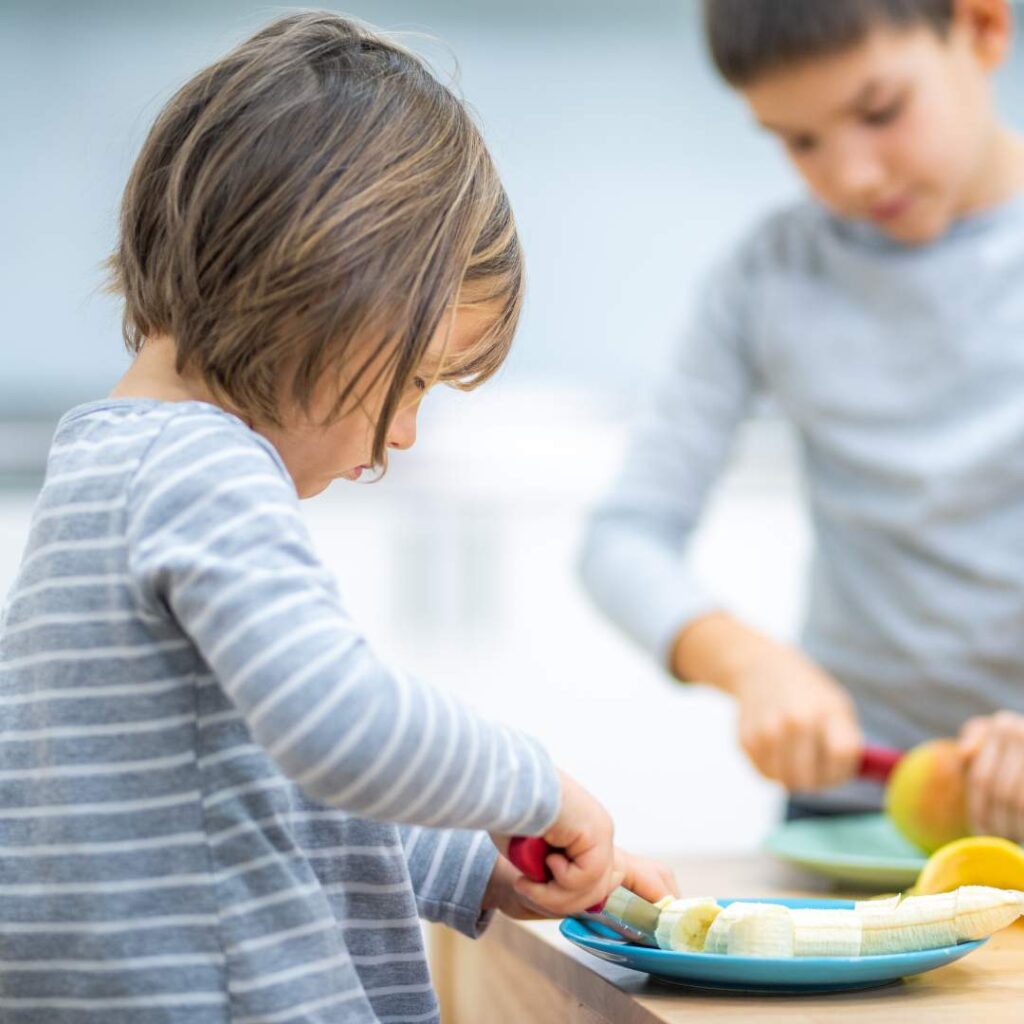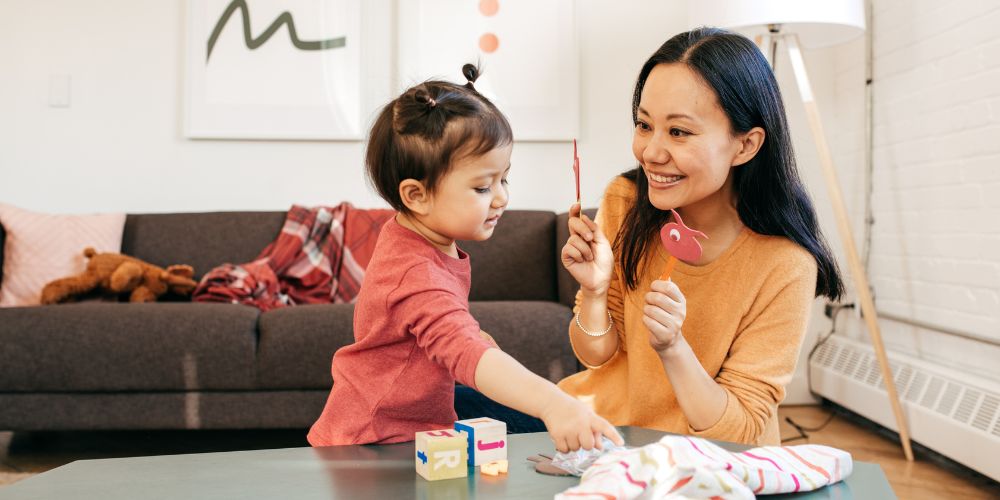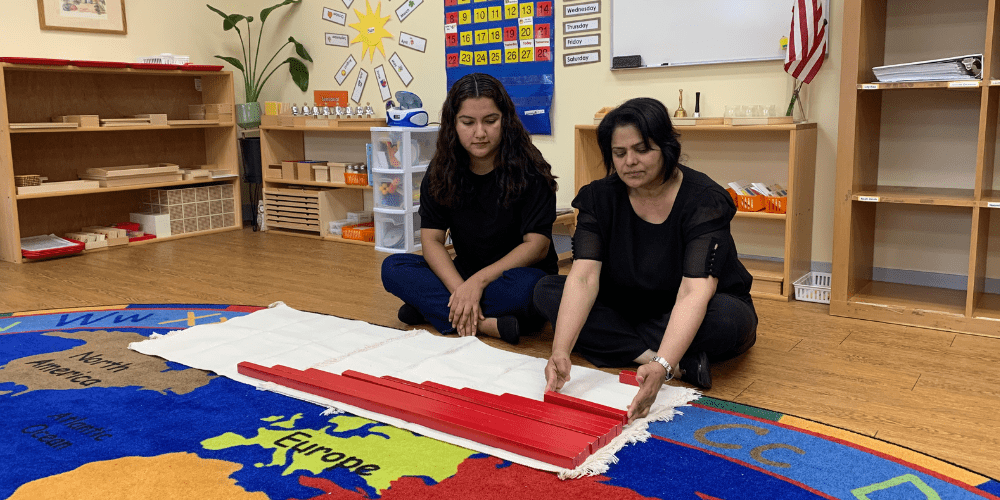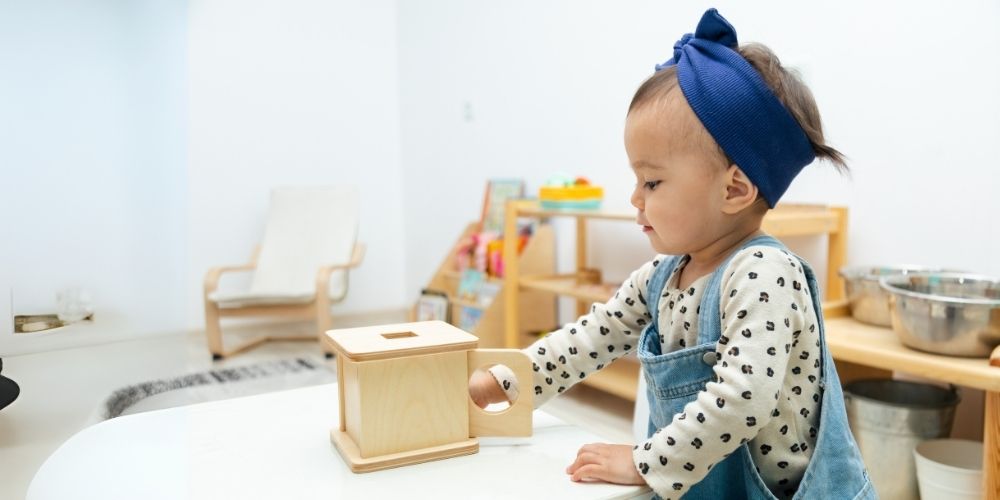Empowering Independence: A Montessori Approach to Mealtime Success
We know how stressful mealtimes can be, and we have curated a Montessori guide to make meals easier and more enjoyable for you and your family! Mealtimes happen every day in a variety of settings and are integral to a child’s adaptation to the world around them. The way a child views food and meals can make a considerable impact on both their physical and emotional development. As a parent, you can implement Montessori practices at home by following our Montessori at Mealtime guidelines.
The Montessori approach to mealtimes works to set the child up for success early and to build healthy habits from the start. Mealtimes are an important, daily, occasion where great attention can be paid to creating both a beautiful and functional setting, and in allowing a child to participate in both preparing and cleaning up after the meal. Families can set children up for success by creating a prepared environment for them in the kitchen so they can safely join into the cooking and cleaning process.
Nourishing our Bodies and Minds
Food and Language
As a Montessori school we emphasize to our students the importance of not placing food into “good” or “bad” categories: different foods do different things and it’s important to have a variety of different foods to stay healthy. For example, we don’t say that cookies are ‘bad’, we simply explain that cookies give our bodies quick energy through the sugar and starch, but that the energy doesn’t last long.
We also feel it is important to never criticize a child’s portion sizes or them responding to their body’s hunger by eating more food on some days and less on others. By allowing your child to self-regulate, they will stop eating when they have had enough, making food much more enjoyable and leading to a healthy relationship with food. We encourage families to practice using clear language with your child during meals like:
- Is your tummy telling you that it is full?
- Would you care for more chicken? Chicken has protein which makes our muscles stronger.
- How does the pasta taste? Do you like the green color of the pesto?
- How do you feel before you eat dinner? What does being hungry feel like?
Prepared Environment in the Kitchen
Montessori classrooms are assembled based on the philosophy of the “prepared environment.” This environment is strategically designed to accommodate the learning needs of children and to appeal to their senses. Everything required for learning is placed at the child’s eye-level and separated by subject area. By doing this, we set up children for success, because learning is now readily accessible on their own terms and on their own level. This same philosophy can also be applied to mealtime and cooking with your child: for your child to be successful in the kitchen, the environment must be well prepared for a child to interact with it.
Montessori philosophy also emphasizes the importance of real life experiences for learning. We encourage letting your child use adult plates, silverware, and cups to eat their dinner so they feel included in the family meal. As you prepare the food, foster your child’s interest in cooking by adapting the activity to their skill set. For example, allow your child to try chopping a banana with a dull butter knife or child’s knife to show them the steps required in food preparation. Even if there is a chance of your child making a mess or a mistake, this messy learning process allows children to practice completing the task successfully, preparing them for future independence.
Small steps to include your child throughout the process begins to teach them what is needed and how to prepare their own food, an important life skill when they need to eat in the future. Some simples tasks your child can work on that also help improve fine motor skills are:
- Washing fruits and vegetables
- Peeling clementines
- Spreading butter or jam on bread
- Grinding coffee with a crank grinder
- Kneading dough
- Smashing avocados
- Pressing tortillas
- Chopping a soft fruit with a child-safe knife
Sharing a Meal as a Family
Saring a meal as a family provides an opportunity for your children to learn from you as their guide. Family meals are a great time to enhance your child’s vocabulary and imagination with dinner-time-discussions. Start by asking your child to explain their day and what happened to them while you were apart: a prompt such as ‘what was your favorite thing that happened today? or ‘did anything happen that surprised you today?’ can help to draw them out and get conversation flowing. Then, share the experience of your own day with your child, trying to introduce new words and ideas to your child.
Packing a Montessori-Inspired Lunch

Did you know you can even incorporate Montessori philosophies into your lunch-making! Allow your child to be your sous chef by having them cut up a part of their lunch, practice opening and closing their lunch Tupperware, letting them choose new foods to try, and sharing with your child the story of where their food came from. We can also use this time to educate our children on food groups and what can make a balanced lunch. Share the benefits of having a variety of carbohydrates, protein, and healthy fats and pack something from each category. Packing small amounts of several different foods increases decision-making skills and autonomy over your child’s “inner-prepared environment,” the safe space they create for themselves.
Celebrating Cultures Through Food
Montessori education places a strong emphasis on cultural experiences and celebrating diverse influences in the classroom. Our children are encouraged to explore and learn about different cultures through our work as well as through the lived experiences of their classmates and teachers. Through our Montessori Links Curriculum, children are exposed to global perspectives and learn to respect and value the different cultures that surround their world.
This global appreciation can be further developed by encouraging students to explore food and cuisines from cultures all over the world. Letting your child experience different food combinations, textures, flavors, smells, and composition of food will broaden your child’s horizons and provide an opportunity to encourage adventurous eating. Not only is food an important way to nourish your body, it can be a fun opportunity to learn the customs and traditions from other cultures as it relates to their foods and manners surrounding their mealtimes.
Clean up Together!

We believe that anyone who was part of the meal is responsible to do their part in cleaning up! Encourage this behavior at home by having your child bring their plate to the counter and (if age appropriate) helping load the dishwasher. You can even set up your own “dish-washing station” for your child with two plastic bins, soapy water, towel, gloves, and a drying area. Start by having your child watch your dishwashing demonstration and use clear language to describe your process when washing the dishes. Then, have your child show you how to wash the dishes after your demonstration; finally, you can wash the dishes side-by-side. Remember to be patient with your child as their motor and critical thinking skills are still being formed, but taking small steps to include your child in daily tasks at a young age will refine their cognitive skills and build their confidence as they grow.
Ultimately, a meal is about more than just eating – the experience and time together is just as valuable as the meal itself. With many families increasingly busy with work, school and extracurricular activities, it’s important to take advantage of these moments together, whether it is over dinner during the week or while having breakfast together on Saturday morning. We encourage all families to take the opportunity to bond with your child and learn about their daily life while you are apart, just as they wish to do the same with you.
If you are interested in learning more about the Montessori Approach, join us for our next Montessori Monday virtual information session or schedule a Tour to learn more today!





